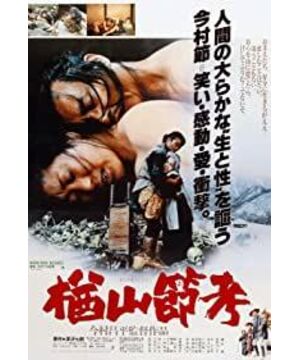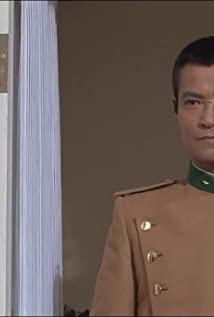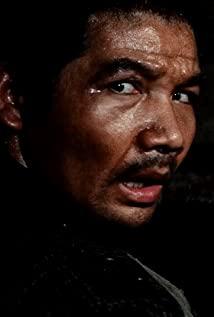I was thinking about it while watching the movie
Are there so-called "reasonable" logics and customs around us, which are actually unreasonable, abnormal, and even lacking in humanity? When we are still aware of it, if there is a conflict with the current society, do we have the courage and wisdom to defend ourselves? A trace of conscience and truth
From seeing the bones all over the mountains and plains to the eldest son being placed in the designated position according to his mother's instructions, and the medicinal powder that the two gave each other to each other, there is no next picture for a whole long section, but it is the most tearful section.
I have seen a very in-depth film review, which mentioned that the director Mr. Imamura Shohei used the camera to make choices for the audience. We are just puppets of the director's emotions and ideas, and we shed tears here, but did not cast contempt for the bad habits of Alina. look
After reviewing my emotional fluctuations, Alingpo seems to be the most transparent and white person in the whole movie.
I've been speculating that I'm oscillating between the two.
1. She believes that everything in the Narayama Festival has its own cause and effect (the end of a version is blindly guessed)
A Lingpo is the most devout person who believes in the god of Narayama. Her husband's remaining independent thinking ability, filial piety, and the goodness inherited by the eldest son Tatsupei will bless the family, and the men who sleep with Azhi in the village will suffer from syphilis and the like. The disease led to the demise of the entire village, and there was a real karma, retribution for their cruel act of burying the whole family alive because of the theft of the Yuwu family.
2. She does not believe that Narayama is familiar with the truth behind this "rationalized or even deified" custom
From the calmness of A Lingpo seeing the bones, I understand that it is obviously the latter.
But why is she so impatient and even self-destructing her body, because she feels that as the head of the family, she has fulfilled all her responsibilities and obligations, and doesn't want to increase the burden on the children's lives? Do you not want to embarrass your family for refusing to go up the mountain? Or have you already seen through everything and would rather choose to accept it calmly? Yes, I didn't think of the level of Aling Po's adherence to bad habits. But at that time, the old man in the neighbor's house in Narayama, was it because of fear of death that they rejected the gods they understood and rejected the traditional bad habits?
Food
There is no money when food is scarce. Food is as important to people as money is in modern times. I can understand the importance that villagers place on food. After all, this is all their property. I just can't agree with the "civilization" of the villagers, which tends to be a barbaric society. I didn't find it. other suitable expressions
color
Regarding Azhi's husband, I can only understand the layer of feudal superstition, and the sadness of the fate of women in a backward place, either being sold for exchange or reduced to a situation where they can only exchange sex for survival
food color
When the rain house was raided, the male owner tried to defend his house because it was not easy to steal the villagers indignantly, "Who let you live all the time?" Such words make people sigh that the temperance that human beings should have is a proposition no matter in that society or in modern times
The whole movie caused me all kinds of discomfort and I don't want to watch it a second time
View more about The Ballad of Narayama reviews











